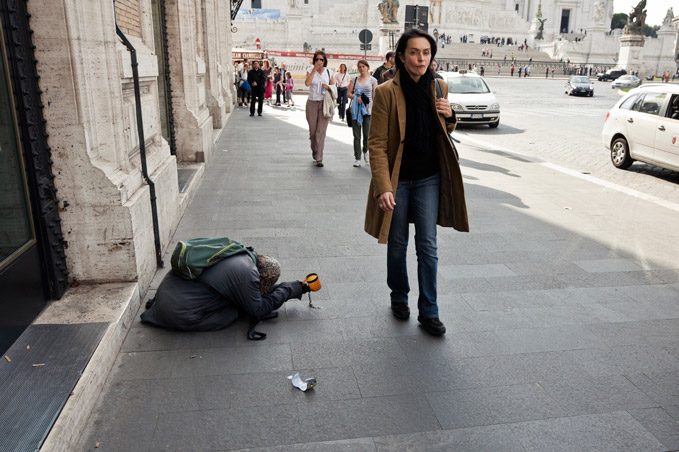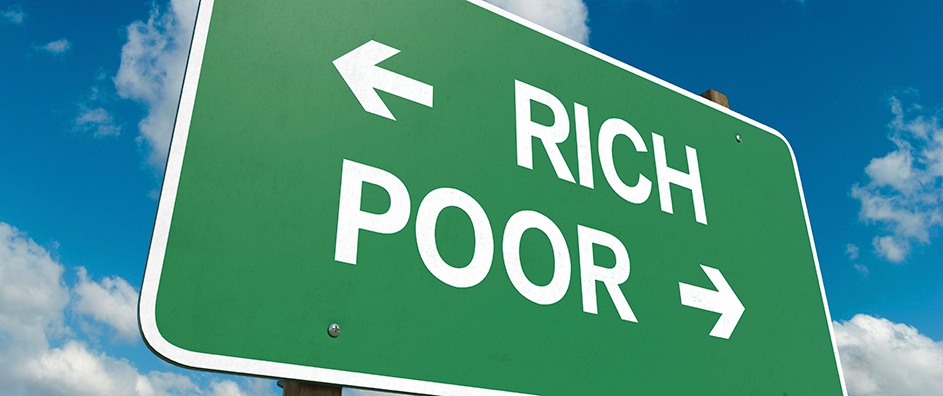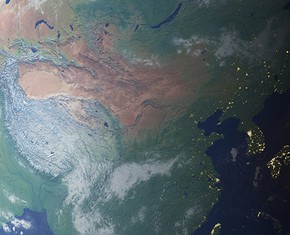The views expressed in our content reflect individual perspectives and do not represent the authoritative views of the Baha'i Faith.
The Baha’i Faith, unlike most other Faiths, offers the world a specific set of economic principles. Designed to promote justice, fairness and unity, those spiritual Baha’i principles do not advocate any of the currently existing economic models of capitalism, socialism or communism. Instead, the Baha’i economic ideals combine the best and most workable features of those systems with a balanced, spiritual approach that endeavors to deeply diminish the impact of the human struggle for existence.
In the modern world our lives have come to depend on struggle and competition, rather than unity and cooperation. Driven by the fear of hunger and poverty, many people suffer when their souls perceive the world’s predominant law as a Darwinian struggle for existence, rather than a harmonious and loving human unity.
The Baha’i teachings say that humanity can better organize its economic systems to minimize our struggle and attain our unity. Rather than a harsh and absolute dependence on the theory of the survival of the fittest, we can look to the spiritual aspects of our nature and find ways to reduce and eliminate the suffering that comes from dire need:
The fourth principle or teaching of Baha’u’llah is the readjustment and equalization of the economic standards of mankind. This deals with the question of human livelihood. It is evident that under present systems and conditions of government the poor are subject to the greatest need and distress while others more fortunate live in luxury and plenty far beyond their actual necessities. This inequality of portion and privilege is one of the deep and vital problems of human society. That there is need of an equalization and apportionment by which all may possess the comforts and privileges of life is evident. The remedy must be legislative readjustment of conditions. The rich too must be merciful to the poor, contributing from willing hearts to their needs without being forced or compelled to do so. The composure of the world will be assured by the establishment of this principle in the religious life of mankind. – Abdu’l-Baha, The Promulgation of Universal Peace, p. 107.
This primary Baha’i economic teaching, repeated in many places and contexts by Baha’u’llah and Abdu’l-Baha, asks humanity to work together to eliminate the extremes of poverty and wealth. Such a voluntary redistribution of resources does not envision just a simple legislative remedy or coercive, mandatory economic adjustments, however. Instead, it envisions a spiritual reformation of the relationship between the rich and the poor, a new sense of unity and fellowship and interaction, a realization that we are all one human family.
 Abdu’l-Baha often said that societies should establish a basic minimum standard of living below which no one could recede; and also find ways to limit excessive individual wealth. From a Baha’i perspective, no person should have to labor strenuously for long hours in return for an inadequate subsistence for himself and his dependents. In the same way, society should not burden any individual with the administration and worry of inordinate wealth.
Abdu’l-Baha often said that societies should establish a basic minimum standard of living below which no one could recede; and also find ways to limit excessive individual wealth. From a Baha’i perspective, no person should have to labor strenuously for long hours in return for an inadequate subsistence for himself and his dependents. In the same way, society should not burden any individual with the administration and worry of inordinate wealth.
Today, in the world’s most advanced nations, humanity has already begun to find ways to approach these laudable goals. Those societies have realized that abject poverty imposes terrible burdens, not just on the poor themselves, but on the entire culture. Endemic poverty potentially brings enormous suffering, starvation and a huge loss of human potential. It hinders overall economic development and growth, generates public health crises, can contribute to crime and violence, and ultimately costs more to symptomatically and continuously treat than to eradicate.
Across the world, the Baha’i-minded spirit of philanthropy and voluntary giving has also begun to take hold among the very wealthy and privileged. Charitable contributions have increased dramatically over the past several decades, especially for causes that address the needs of the neediest.
Erasing poverty and easing the struggle for existence has tremendous benefits for everyone—and those benefits go far beyond simple economic prosperity. The spiritual uplift that eradicating poverty brings to all people, the rich and the poor and those in between, generates joy and satisfaction and unity. When you help a member of your own family, when you educate or feed or clothe a child, it satisfies something deep in your soul. The same thing happens when you help a member of the human family.
The Baha’i teachings envision a future state of society when these new spiritual principles have inspired and sustained a rising tide of compassion, love and kindness:
The human world will adapt itself to a new social form, the justice of God will become manifest throughout human affairs, and human equality will be universally established. The poor will receive a great bestowal, and the rich attain eternal happiness. For although at the present time the rich enjoy the greatest luxury and comfort, they are nevertheless deprived of eternal happiness; for eternal happiness is contingent upon giving, and the poor are everywhere in the state of abject need.
Through the manifestation of God’s great equity the poor of the world will be rewarded and assisted fully, and there will be a readjustment in the economic conditions of mankind so that in the future there will not be the abnormally rich nor the abject poor. The rich will enjoy the privilege of this new economic condition as well as the poor, for owing to certain provisions and restrictions they will not be able to accumulate so much as to be burdened by its management, while the poor will be relieved from the stress of want and misery. The rich will enjoy his palace, and the poor will have his comfortable cottage. – Abdu’l-Baha, The Promulgation of Universal Peace, p. 131.
















Comments
Sign in or create an account
Continue with Googleor